
-
OVERVIEW
South Africans collectively crafted a Constitution, unique and far-reaching in its provisions, that is regarded as one of the best in the world. Among others, it establishes a wide range of constitutionally-protected institutions that are mandated to strengthen our democracy and promote respect for human rights, equality and freedom in our society.
Ten years after the attainment of democracy in our country, the Executive evaluated the progress made towards the consolidation of democracy and the promotion and protection of constitutional rights, values and principles in South Africa. On 21 September 2006, the National Assembly adopted a resolution establishing an ad hoc committee to review State institutions supporting constitutional democracy.
After extensive engagement with stakeholders such as government, Parliament, business and civil society, the ad hoc Committee under the guidance of Prof Kader Asmal submitted its report to the National Assembly on 31 July 2007. The report outlined a number of findings and made specific recommendations on ways in which the institutions could be improved to enhance performance and meaningful engagement with Parliament.
One of the recommendations called for the establishment of a Unit on Constitutional Institutions and other statutory bodies to be located in the Office of the Speaker. Subsequently, on 21 November 2008, the National Assembly adopted a resolution for the establishment of the Unit in order to strengthen its capacity to perform its function of oversight and accountability, relating to the Institutions Supporting Democracy, and to co-ordinate all activities between those Institutions and the National Assembly.
In September 2010, after extensive consultation with internal and external stakeholders, a Unit referred to as the Office on Institutions Supporting Democracy was established within the Office of the Speaker. In his address during the 2013 debate on Parliament’s Budget Vote, the former Speaker of the National Assembly, Mr Max Sisulu, commented on the fact that the Office has provided invaluable support to Presiding Officers, Portfolio Committees and the ISDs. He said: "Since its establishment we have witnessed improved relations between Parliament and the ISDs. They have also expressed their satisfaction with the support and encouragement received from the office."
It is envisaged that the addition of the Unit will continue to serve as a meaningful contribution, with a view to nurturing and consolidating democracy, human dignity, equality and freedom in our country.
CHAPTER 9 AND ASSOCIATED STATUTORY BODIES
- Auditor General
- Commission for Gender Equality
- Commission for the Promotion and Protection of the Rights of Cultural, Religious and Linguistic Communities
- Electoral Commission
- Financial and Fiscal Commission
- Independent Communication Authority of South Africa
- National Youth Development Agency
- Pan-South African Language Board
- Public Protector
- Public Service Commission
- Human Rights Commission
-
NEWS
Chapter 9 Institutions ‘closer’ to Parliament
Since the establishment of the Office on Institutions Supporting Democracy (ISDs), there has been a discernible improvement in the relationship between Parliament and the institutions, according to the Speaker of the National Assembly Mr Max Sisulu.
Read more -
INSTITUTIONS SUPPORTING DEMOCRACY
Auditor-General South Africa

Mandate and Functions of the Auditor-General
Section 181(1) (e) in Chapter 9 of the Constitution of the Republic of South Africa, 1996, establishes the institution of the Auditor-General of South Africa (AGSA), and recognises its importance and guarantees its independence. The Constitution declares that the AGSA must be impartial, exercise its powers, and perform its functions without fear, favour or prejudice. The functions of the AGSA are described in section 188 of the Constitution and further regulated in the Public Audit Act (PAA), 2004 (Act No. 25 of 2004).
The AGSA, as the supreme auditing institution in South Africa, is the external auditor of all national and provincial state departments, municipalities and municipal entities. The main function of the AGSA is to audit and report on the accounts, financial statements and financial management of all national and provincial government departments and administrations, all municipalities and municipal entities and any other institution required by law to be audited by the AGSA. In addition, the AGSA may audit and report on the accounts, financial statements and financial management of listed public entities, and any other institution funded from the National Revenue Fund, a Provincial Revenue Fund or by a municipality.Statutory appointments in relation to the Auditor-General
In terms of section 6 of the Public Audit Act, when the Auditor-General is to be appointed, the Speaker must initiate the process in the National Assembly for the recommendation of a person to the President for appointment. When making an appointment, the President must determine the term for which the appointment is made, provided that the Auditor-General must be appointed for a fixed, non-renewable term of between five and ten years, in terms of section 189 of the Constitution.
The Auditor-General, after consulting the oversight mechanism, must appoint the Deputy Auditor-General (section 31(1)). This person must demonstrate appropriate qualifications and experience. The Deputy Auditor-General holds office, for an agreed term not exceeding five years which may be renewed for one additional term; and on terms and conditions determined by the Auditor-General (section 31(2)).Commission for Gender Equality
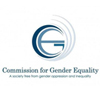
Mandate and Functions of the Commission for Gender Equality
The Commission for Gender Equality (CGE) was established by section 181(1) (d) of the Constitution. Furthermore, the mandate of the CGE is enshrined in section 187 of the Constitution and provides additional powers and functions prescribed by the national legislation. The founding legislation is the CGE Act No: 39 of 1996. Constitutionally, the CGE is empowered to promote respect for gender equality and the protection, development and attainment of gender equality. The Commission was established to achieve the following functions:
- monitor and evaluate policies and practices of all organs of state at any level; statutory bodies or functionaries; public bodies and authorities; private businesses, enterprises and institutions, to promote gender equality and make recommendations that the Commission deems necessary;
- develop, conduct or manage information and education programmes to foster public understanding on matters relating to the promotion of gender equality and the role and activities of the Commission;
- review laws and policies which affect gender equality and the status of women, and make recommendations or suggest new laws to Parliament;
- monitor compliance with international conventions on gender equality that South Africa entered into, and submit reports to Parliament;
- conduct research;
- consider such recommendations, suggestions and requests concerning the promotion of gender equality as it may receive from any source;
- investigate any gender-related issues of its own accord or upon receipt of a complaint to resolve any dispute or rectify any act or omission by mediation, conciliation or negotiation provided that the Commission may at any stage refer any matter to the South African Human Rights Commission (SAHRC), Public Protector or any other appropriate authority in accordance with the provisions of the Constitution and the law; and
- work in close liaison with any organisation that actively promotes gender equality.
The commission may investigate any gender-related issues, including discrimination based on sex or gender, discrimination based on pregnancy, discrimination based on marital status, discrimination based on family responsibilities or being a single parent, sexual harassment of any kind and sex or gender-based violence.
Statutory appointments in relation to the Commission for Gender Equality
Constitution of the RSA, 1996 – Section 193 In terms of the Constitution, the members of the CGE must be women or men who are South African citizens; are fit and proper persons to hold the particular office; and comply with any other requirements prescribed by national legislation (section 193(1)). The need for a Commission established by the Constitution to reflect broadly the race and gender composition of South Africa must be considered when members are appointed (section 193(2)). The members of the CGE are appointed by the President, on the recommendation of the National Assembly (section 193(4)). The members of the Commission may be appointed as full-time or part-time members and hold office for a fixed term, as the President may determine, not exceeding five years. The term of office of the full-time members may not expire simultaneously. No fewer than two and no more than seven members must be appointed on a full-time basis (section 3(4)). Any person whose term of office as a member of the Commission has expired, may be reappointed for one additional term (section 3(7)). A Chairperson of the Commission is appointed by the President and a Deputy Chairperson of the Commission is elected by the members of the Commission from among their number (section 3(9)).
CGE Women’s Month Calendar of Events 2022
The Commission for the Promotion and Protection of the Rights of Cultural, Religious and Linguistic Communities
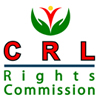
Mandate and Functions of the CRL Commission
The Commission for the Promotion and Protection of the Rights of Cultural, Religious and Linguistic Communities (CRL Commission) was established by section 181(1)(c) of the Constitution. The mandate of the CRL Commission is enshrined in section 185 of the Constitution. The purpose of the Commission is to promote respect for and strengthen the rights of the cultural, religious and linguistic communities and to assist in the realisation of the rights contained in the Bill of Rights. The Commission is also tasked to assist in developing peace, friendship, humanity, tolerance and national unity among these communities, and to promote the right of these communities to develop their historically diminished heritage.
The enabling legislation, the CRL Commission Act No: 19 of 2002, provides the additional powers necessary to achieve its primary objects, including the power to monitor, investigate, research, educate, lobby, advise and report on issues concerning the rights of cultural, religious and linguistic communities. Section 185(3) provides that the Commission may report any matter that falls within its powers and functions to the SAHRC for investigation. Statutorily, the functions of the Commission are to:- conduct programmes to promote respect for, and further the protection of the rights of cultural, religious and linguistic communities;
- conduct information and education programmes to promote public understanding of the objects, role and activities of the Commission;
- develop strategies for the full and active participation of these communities in nation-building in South Africa, and promote youth awareness on the diversity of these communities and their rights;
- educate, lobby, advise and report on any issue concerning the rights of these communities, including to monitor, investigate and research any issue concerning the rights of these communities and make recommendations to the appropriate organ of state regarding legislation that impacts or may impact them;
- establish and maintain a database of cultural, religious and linguistic community organisations and institutions and experts on these communities; and
- resolve disputes where the cultural, religious and linguistic rights of a community are affected, and make suggestions on laws that affect the rights of these communities.
Statutory appointments in relation to the CRL Commission
In terms of the CRL Commission Act, the Commission consists of a Chairperson and no fewer than 11 and no more than 17 other members appointed by the President (section 9(1)). The President is required to determine the number of members to be appointed to the Commission but may, when appointing members for a new term of the Commission, increase the number. The President may alter the number referred to above, from time to time, but may reduce the number only when appointing members for a new term of the Commission (section 9(2)). The term of office of the members of the Commission is five years (section 13(1)). The Chairperson and the other members of the Commission are appointed for one term of the Commission, but may be reappointed at the end of that term for one further term only (section 13(2)).
Section 13(1) provides that the term of office of the members of the Commission is five years. Furthermore, the Chairperson and the other members of the Commission are appointed for one term of the Commission, but may be reappointed at the end of that term for one further term only. Section 13(3) provides “if the number of members contemplated in section 9(1) (b) is increased during a term, the additional member or members are appointed for the remaining part of the current term”. Section 14(2) stipulates that “members of the Commission are appointed in a part-time capacity, but the Chairperson, Deputy Chairperson and no more than three other members may be appointed in a full-time capacity”.Financial and Fiscal Commission
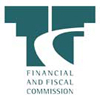
Mandate and Functions of the Financial and Fiscal Commission
The Financial and Fiscal Commission (FFC) was established by section 220 of the Constitution. An enabling piece of legislation, the Financial and Fiscal Commission Act No. 99 of 1997, empowers the Commission to perform its functions. The primary responsibility of the Commission is to make recommendations to Parliament, provincial legislatures and organised local government on the division of the revenue that has been collected at the national level among the national, provincial and local spheres of government. In terms of section 3(1) of the FFC Act, the Commission acts as a consultative body for, and makes recommendations and gives advice to, organs of state in the national, provincial and local spheres of government on financial and fiscal matters.
Statutorily, it may perform these functions on its own initiative or on request of an organ of state. Another responsibility of the Commission is to advise Government on the imposition of provincial taxes; the shifting of powers and functions between the three spheres of government; and provincial and municipal applications for loans. The final and more general responsibility of the Commission is to advise all organs of state (including Parliament, provincial legislatures and organised local government) on financial and fiscal matters, and to promote the development of an efficient, sustainable and fair system of intergovernmental fiscal relations. The FFC makes recommendations and gives advice on financial and fiscal matters as prescribed by legislation, at the request of an organ of state, and on its own initiative. The main functions of the FFC, as derived from the various Acts, are to:- make suggestions for the fair division of nationally collected revenue (income) among the three spheres of government;
- make suggestions regarding any other allocations norms and standards and applicable criteria for various intergovernmental fiscal arrangements;
- produce various reports yearly and distribute them to legislatures; and
- undertake relevant research to be able to provide advice on financial and fiscal matters.
The Vision of the FFC is to provide influential advice for an equitable, efficient and sustainable IGFR. Its Mission is to provide proactive, expert and independent advice on promoting a sustainable and equitable IGFR system, through evidence-based policy analysis to ensure the realisation of the constitutional values.
Statutory appointments in relation to the Financial and Fiscal Commission
Section 221 of the Constitution provides that the Commission consists of the following women and men appointed by the President: a chairperson and deputy chairperson; three persons selected, after consulting the Premiers, from a list compiled in accordance with a process prescribed by national legislation; two persons selected, after consulting organised local government, from a list compiled in accordance with a process prescribed by national legislation; and two other persons.
The members of the Commission must be appointed for a term not exceeding five years and a member may be reappointed when that member’s term expires as provided in section 8 of the Financial and Fiscal Commission Act No. 99 of 1997, as amended by Act No. 4 of 2015. Section 8(4) stipulates, “a person may not hold office as a member of the Commission for a period of more than 10 consecutive years.” Section 5(2) of the Act provides that the Minister must notify each Premier accordingly within 14 days of receiving the Commission’s written notification of the vacancy, whereby the respective Premiers will each nominate one person for appointment to the Commission. The Minister will subsequently compile a list of nominees and the Premiers must endeavour to reach consensus on a shortlist of nominees, comprising one more name than the number of vacancies that must be filled. Once consensus has been reached, the shortlist is contemplated in section 5(1) (b), where the President appoints members of the Commission. In terms of section 5(3) of the FFC Act, as amended, the President must make an appointment to fill the vacancy on the Commission within a period of six months from the date when the vacancy occurs. In terms of section 8(2) of the FFC Act, as amended, the Chairperson of the Commission is full-time and other members of the Commission are part-time.Independent Communications Authority of South Africa
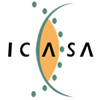
Mandate and Functions of the Independent Communications Authority of South Africa
Section 192 of the Constitution provides for the establishment of an independent authority to regulate broadcasting in the public interest, and to ensure fairness and a diversity of views broadly representing the South African society. Consequently, an enabling statute, the Independent Communications Authority of South Africa Act, was enacted in 2000. In terms of the Electronic Communications Act, 2005, the Independent Communications Authority of South Africa’s (ICASA) mandate also extends to the postal services and the electronic communications sectors. The main functions of the Council are to:
- regulate the telecommunications, broadcasting and postal industries in the public interest and ensure affordable services for all South Africans;
- protect consumers from unfair business practices and poor quality services, hear and decide on disputes and complaints brought against licensees and controls;
- license broadcasters, signal distributors, provide telecommunication services and postal services;
- grant, renew, amend, transfer and revoke licences, including to make regulations and impose licence conditions;
- plan, assign, control, enforce and manage the frequency spectrum, including to ensure international and regional co-operation and the effective distribution of numbers;
- monitor the electronic communications sector to ensure compliance with the law;
- make suggestions on policy matters and changes to the law to promote development in the postal and communications sectors;
- conduct research on all matters affecting the postal and communications sectors, and inspect equipment used for communications; and
- carry out inquiries on any matter within its authority.
The Postal Services Act of 1998 requires ICASA to license and monitor the South African Post Office on customer care standards and universal service obligations, including the roll-out of street address delivery and providing retail postal services in underserviced areas.
Statutintments in relaory appotion to the Independent Communications Authority of South Africa
The ICASA Act (Act No. 13 of 2000) provides that the Council consists of a chairperson and eight other councillors appointed by the Minister upon approval by the National Assembly. The Chairperson holds office for a period of five years, and may at the end of his or her term of office be reappointed (section 7(1)). The other councillors each hold office for a period of four years, and may at the end of his or her term of office be reappointed for one additional term (section 7(5)).
Independent Electoral Commission of South Africa
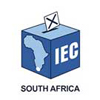
Mandate and Functions of the Independent Electoral Commission
Section 181(1) (f) of the Constitution establishes an independent Electoral Commission (IEC) to manage elections within South Africa to ensure that they are free and fair. An enabling statute, the Electoral Commission Act, was passed in 1996. The main functions of the IEC are to:
- manage elections for national, provincial and local legislative bodies and any referendum, including to ensure that any election is free and fair, and declare the results within seven days;
- promote conditions conducive to free and fair elections, and knowledge of democratic electoral processes;
- compile and maintain voters’ rolls and a register of parties, and establish and maintain liaison and co-operation with parties;
- undertake and promote research into electoral matters, including to develop electoral expertise and technology at all levels of government;
- continuously review electoral laws and make recommendations in connection therewith;
- promote voter education including co-operation with and between persons, institutions, governments and administrations for the achievement of its objectives; and
- adjudicate administrative disputes which may arise from the organisation, administration or conducting of elections.
The Electoral Court may review decisions on an electoral matter taken by the Commission. In addition, the Electoral Court may, amongst other things, hear and determine any matter that relates to the interpretation of any law referred to it by the Commission.
Statutory appointments in relation to the Independent Electoral Commission
In terms of section 6 (1) of the Electoral Commission Act, the Commission consists of five members, one of whom must be a judge. A panel consisting of the President of the Constitutional Court, as chairperson; a representative of the South African Human Rights Commission; a representative of the Commission on Gender Equality; and the Public Protector must submit a list of no fewer than eight recommended candidates to the committee of the National Assembly (sections 6(3) and 6(4)). The NA must nominate members from this list for appointment by the President of the RSA.
Section 14 (1) of the Electoral Commission Act can be couched as a requirement on the IEC to submit its annual report to the NA. Section 14 (2) of the Act triggers an obligation on the IEC to account directly to the President, if the President makes such request in writing. Furthermore, subsection 4 leaves it at the discretion of the Commission to publish its report on the pending elections. There is no provision in the Act that obligates the IEC to submit reports other than the annual reports to Parliament. Subsections 3 and 4 merely state that the ‘election reports’ should be published, and does not stipulate that it must be submitted to Parliament. Furthermore, the President must designate a chairperson and vice chairperson from among the members of the Commission (section 8(1)). The term of office of a member of the Commission is seven years (section 7(1)). A Commissioner may be reappointed, but only for one additional term of office (section 7(3) (c)).National Youth Development Agency

Mandate and Functions of the National Youth Development Agency
The National Youth Development Agency Act of 2008, establishes the National Youth Development Agency (NYDA). The NYDA absorbed the National Youth Commission and the Umsobomvu Youth Fund, whose functions are now included under the NYDA. It is established by section 2 of the NYDA Act. The Agency derives its mandate from the NYDA Act, the National Youth Policy (2009-2014) and the draft Integrated Youth Development Strategy.
The mandate of the NYDA is to advance youth development through guidance and to support initiatives across sectors of society and spheres of government, to embark on initiatives that seek to advance the economic development of young people, to develop and co-ordinate the implementation of the Integrated Youth Development Plan and Strategy for the country. The key objectives of the NYDA as captured in the NYDA Act are to:- develop an Integrated Youth Development Plan and Strategy for South Africa;
- develop guidelines for the implementation of an integrated national youth development policy and make recommendations to the President;
- initiate, design, co-ordinate, evaluate and monitor all programmes aimed at integrating the youth into the economy and society in general;
- guide efforts and facilitate economic participation and empowerment, and achievement of education and training;
- partner and assist organs of state, the private sector and non-governmental organisations and community based organisations on initiatives directed at attainment of employment and skills development;
- initiate programmes directed at poverty alleviation, urban and rural development and the combating of crime, substance abuse and social decay amongst youth;
- establish annual national priority programmes in respect of youth development; and
- promote a uniform approach by all organs of state, the private sector and non-governmental organisations.
The main functions of the NYDA as set out by the NYDA are to:
- lobby and advocate for integration and mainstreaming of youth development in all spheres of government, private sector and civil society;
- initiate, implement, facilitate and coordinate youth development programmes;
- monitor and evaluate youth development intervention across the board; and
- mobilise youth for active participation in civil society engagements.
Statutory appointments in relation to the National Youth Development Agency
In terms of section 9(1) of the NYDA Act, the Board consists of seven members, two of whom are executive directors; and the Chief Executive Officer, who is an ex-officio member of the Board without voting rights. Section 9(2) provides that the President, on the recommendation of Parliament, must appoint members. Members hold office for a period of three (3) years as stipulated in subsection (6). The Act is silent on whether or not members are eligible for reappointment.
Section 9(3) provides that members must be appointed in a manner ensuring participation by youth in the nomination process, transparency and openness, and that a shortlist of candidates for appointment is published. The Act further stipulates that the members must reflect the demographics and geographical spread of the Republic. In terms of section 9(5), the President may designate one of the members as the chairperson and another member as a deputy chairperson. The President must further publish the appointment of a member in the Government Gazette. In accordance with section 9(9), a member appointed to fill a vacancy holds office for the unexpired portion of the term of the member he or she replaces.Pan South African Language Board

Mandate and Functions of the Pan South African Language Board
Section 6(5) of the Constitution provides for a Pan South African Language Board (PanSALB) to be established by national legislation for the purpose of promoting and creating conditions for the development and use of all official languages, the Khoi, Nama, and San languages and sign language. The Board must also promote and ensure respect for all other languages commonly used by communities in South Africa. An enabling Act, the Pan South African Language Board Act No: 59 of 1995 and spells out the main functions of PanSALB. These are to:
- make suggestions on any laws, practice and policy dealing with language matters at any level of government, including on adoption of measures aimed at the promotion of multilingualism;
- advise on the co-ordination of language planning and active awareness of multilingualism in South Africa;
- actively promote the development of previously marginalised languages;
- initiate studies and research aimed at promoting and creating conditions for the development and use of all the official languages in South Africa, the Khoi and San and South African Sign Language;
- initiate studies and research aimed at the promotion of the use of South Africa’s language resources, monitor the observance of the constitutional provisions regarding the use of language; and
- conduct research and prepare publications on the use of language, including to advise government to provide individuals or groups who are adversely affected by severe violations of language rights with financial and other support.
The Board may on its own initiative, or on receipt of a written complaint investigate alleged violation of any language right, language policy or language practice. They may call upon any person, body or state organ to appear before it to give evidence and produce any relevant records or documents.
Statutory appointments in relation to the Pan South African Language Board
In terms of section 5(1)(a) of the PanSALB Act 59 of 1995 (as amended), the Minister (Minister of Arts and Culture) must appoint no fewer than 11 and no more than 15 persons as members of the Board. Section 5(2) provides for the criteria for the members of the Board, which include; the members of the Board must be fit and proper persons for the offices they are meant to hold, be South African citizens, be broadly representative of the diversity of the users of the official languages and must be supportive of the principle of multilingualism. The Board members must have language skills that may include interpreting, translation, terminology and lexicography or have financial and legal expertise with special knowledge of language legislation.
A member of the Board is appointed for a term of five years and is eligible for reappointment for one further term only [section 5(5)]. Section 6 of the Act provides for the appointment of chairpersons and deputy chairpersons; at the first meeting of the Board, the members of the Board were required to, with the chief Justice presiding, elect one of their number to be chairperson of the Board and another one to be deputy chairperson of the Board. Thereafter an election must be held annually. A chairperson and deputy chairperson shall be eligible for re-election for one further term not exceeding one year. The chief executive officer must conduct the election of a new chairperson or deputy chairperson.Public Protector South Africa

Mandate and Functions of Public Protector South Africa
The Public Protector’s mandate is derived from section 181 and 182 of the Constitution, and includes to support and strengthen constitutional democracy by: investigating any conduct in state affairs, or in the public administration in any sphere of government, that is alleged or suspected to be improper or to result in any impropriety or prejudice; reporting on that conduct; and taking appropriate remedial action.
The Public Protector must be accessible to all persons and communities. The Public Protector has the following key statutory mandate areas:
- Maladministration Investigations and Dispute Resolution - Investigate and redress maladministration or improper or prejudicial conduct, including abuse of power and abuse of state resources in all state affairs; resolving administrative disputes or rectifying any act or omission in administrative conduct through mediation, conciliation or negotiation; advising on appropriate remedies or employing any other expedient means and reporting as envisaged under the Public Protector Act 23 of 1994;
- Executive Ethics Enforcement - Enforce the Executive Members Ethics code as empowered by the Executive Members’ Ethics Act 82 of 1998;
- Corruption Investigations - Investigate allegations of corruption as empowered by Section 6 (4) of the Public Protector Act, read with the Prevention and Combating of Corrupt Activities Act 12 of 2004;
- Protected Disclosures - Receive protected disclosures from whistle blowers under the Protected Disclosures Act 26 of 2000; and
- Review of NHBRC Decisions - Review the decisions of the National Home Builders Registration Council as empowered by the Housing Protection Measures Act 95 of 1998.
In addition, the following laws either recognise the inherent investigative powers of the Public Protector or assign some administrative role to the office:
- Electoral Commission Act 51 of 1996;
- National Archives and Record Service Act 43 of 1996;
- National Energy Act 40 of 2004;
- Promotion of Equality and Prevention of Unfair Discrimination Act 4 of 2000;
- Public Finance Management Act 1 of 1999;
- Lotteries Act 57 of 1997;
- Special Investigating Units and Special Tribunals Act 74 of 1996; and
- National Environmental Management Act 108 of 1999.
The interpretation of this mandate means that the Public Protector has an oversight function over approximately a 1000 organs of state, including National and Provincial Government Departments, all metropolitan, district and local municipalities as well as public institutions, statutory bodies and institutions performing a public function.
The Public Protector may conduct investigations by taking initiative or on receipt of a complaint. However, the Public Protector may not investigate court decisions and sentences. Moreover, unless the Public Protector permits it in special circumstances, any complaint must be reported within two years after the incident or matter occurred to be investigated.
Statutory appointments in relation to the Public Protector South Africa
In terms of the Constitution, the President is required to appoint the Public Protector on the recommendation of the NA. The Public Protector is appointed for a non-renewable period of seven years. The President, on the recommendation of the NA, is required to appoint a person as Deputy Public Protector for such period as the President may determine at the time of such appointment, but not exceeding seven years (section 2A (1) of the Public Protector Act, No. 23 of 1994). The Deputy Public Protector may at the end of his or her term of office be reappointed for one additional term (section 2A (2) of the Public Protector Act, No. 23 of 1994).
Public Service Commission

Mandate and Functions of the Public Service Commission
The Public Service Commission (PSC) was established in terms of section 196 of the Constitution. An enabling statute, the Public Service Commission Act, was passed in 1997. The PSC has the power to investigate, monitor and evaluate the organisation and administration of the public service. This mandate also involves the evaluation of achievements, or the lack of achievement, of government programmes.
The PSC also has a duty to promote measures that will ensure effective and efficient performance within the public service and to promote values and principles of public administration throughout the public service. The main functions of the commission are to:- promote the constitutionally prescribed values and principles governing public administration in the public service, set out in section 195 of the Constitution;
- investigate, monitor, evaluate and commission inquiries on the organisation and administration, and the personnel practices of the public service;
- propose measures to ensure effective and efficient performance within the public service;
- give directions aimed at ensuring that personnel procedures relating to recruitment, transfers, promotions and dismissals comply with the constitutionally prescribed values and principles; and
- report in respect of its activities and the performance of its functions, including any finding it may make and directions and advice it may give, and to provide an evaluation of the extent to which the constitutionally prescribed values and principles are complied with.
The investigations and inquiries conducted by the PSC may include the maladministration and corruption, service delivery standards, dishonesty or improper dealings with regard to public money; and the behaviour, competency, diligence and attitude of employees within the public administration.
Statutory appointments in relation to the Public Service Commission
In terms of the Constitution, the Commission has 14 commissioners appointed by the President, as follows: five Commissioners approved by the National Assembly; and one Commissioner for each of the nine provinces, nominated by the Premier of the province (section 196(7)). A commissioner is appointed for a term of five years, which is renewable for one additional term only.
South African Human Rights Commission
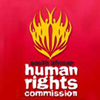
Mandate and Functions of the South African Human Rights Commission
Section 181(1) (b) of the Constitution establishes a SAHRC. An enabling statute, the South African Human Rights Commission Act, was passed in 1994. The mandate of the SAHRC is to promote respect for human rights and a culture of human rights, promote the protection, development and attainment of human rights; and monitor and assess the observance of human rights in the Republic. The additional functions of the SAHRC are to:
- develop and conduct information programmes;
- advance common policies and practices and to promote cooperation in relation to the handling of complaints in cases of overlapping jurisdiction;
- consider suggestions and requests concerning fundamental rights as it may receive from any source;
- carry out studies concerning fundamental rights;
- annually request relevant organs of state to provide it with information on the measures that they have taken towards the realisation of the rights in the Bill of Rights, concerning housing, health care, food, water, social security, education and the environment;
- take steps to secure appropriate redress where human rights have been violated;
- bring proceedings in a competent court or tribunal in its own name, or on behalf of a person or a group or class of persons; and
- promote the achievement of equality, in terms of the Promotion of Equality and Prevention of Unfair Discrimination Act of 2000 (PEPUDA).
The SAHRC may conduct any investigation on receipt of a complaint or on its own accord, into any alleged violation of, or a threat to, a fundamental right. Chapter 2 of the Constitution contains the Bill of Rights, which enshrines the rights of all people in our country. A few examples of human rights are the right to equality; the right to human dignity; the right to freedom of expression; the right to privacy; and the right to health care, food, water and social security.
Statutory appointments in relation to the South African Human Rights Commission
In terms of the Human Rights Commission Act, the members of the Commission may be appointed as fulltime or part-time members and hold office for such fixed term as the President may determine at the time of such appointment, but not exceeding seven years. Not less than five members must be appointed on a full-time basis [section 3(1)]. The President may, in consultation with the Commission, appoint a part-time member as a full-time member for the unexpired portion of the part-time member’s term of office [section 3(2)]. Any person, whose term of office as a member of the Commission has expired, may be reappointed for one additional term [section 3(3)]. In terms of the Interim Constitution, 1993 a Chairperson and a Deputy Chairperson of the Commission shall, as often as it becomes necessary, be elected by the members of the Commission from among their number.
- GALLERY
-
SPEECHES AND ARTICLES
A Society for All!
The General Assembly proclaimed 20 February as World Day of Social Justice in 2007.
Read moreAddress by Speaker Baleka Mbete (MP) on the Occasion of the South African Human Rights Commission’s (Sahrc), 20 Year Anniversary: National Conference on Racism, Gallagher Estate, Midrand South Africa, 14 March 2016.
I am honoured to be part of this critical engagement on an issue that affects each one of us not only in South Africa, but indeed the rest of the world.
Read moreAddress by Speaker Baleka Mbete MP, on the occasion of the 14th International Festival of Language and Culture, Braamfontein, 21 April 2016.
I am delighted to join you at this, the 14th International Festival on Language and Culture. Thank you for this invitation.
Read moreRole of Office on Institutions Supporting Democracy in Strengthening Public Accountability
I have been asked to speak on the role of the Office on Institutions Supporting Democracy (OISD) in strengthening public accountability.
Read moreAddress by National Assembly Speaker Max Sisulu MP on the Occasion of the Farewell Luncheon in Honour of the Auditor-general Mr Terence Mncedisi Nombembe
It is my pleasure to welcome everyone, and especially our honoured guests, Mr Terence Mncedisi Nombembe, and his wife, Mrs Nokwanda Nombembe, to Parliament today.
Read moreVote of Thanks by Chairperson of the NCOP, Hon Mninwa Johannes Mahlangu at the Luncheon in Honour of the Outgoing Auditor-general, Mr Terence Nombembe in Parliament
I welcome the opportunity to thank all participants at this special ceremony to bid farewell to the outgoing Auditor-General, Mr. Terence Nombembe.
Read more30 October 2013 - Address by Speaker at the Roundtable Discussion on 30 October 2013
Let me welcome you all to this second meeting between Parliament and the Institutions Supporting Democracy (ISDs). It is indeed an honour for me to welcome you to Parliament for the opportunity to strengthen our relationship and to continue to find ways to improve on the working relations between Parliament and ISDs.
Read more19 June 2012 - Address by Deputy Speaker at the Induction of new Commission for Gender Equality (CGE) Commissioners.
It is an honor for me to say a few words on this important occasion. In essence, the role of the Commission is to safeguard gender equality, with an equal emphasis on the status and well-being of both men and women.
Read more17 October 2011 - Role of Office on Institutions Supporting Democracy in Strengthening Public Accountability
I have been asked to speak on the role of the Office on Institutions Supporting Democracy (OISD) in strengthening public accountability.
Read more13 October 2011 - Speaking Notes for the Deputy Speaker Nomaindia Mfeketo at the Farewell Lunch hosted for the Chairperson and Commissioners of the Independnet Electoral Commission (IEC), Parliament
This is a very special day for me, for us in the history of this Parliament. The history that is engraved with the footprints of our people who planted the seeds of freedom. The footprints of our people who fought for our Constitutional Democracy and laid the foundation for a better life for all.
Read more1 October 2010 - Address by Deputy Speaker Hon. Nomaindia Mfeketo MP at the Launch of the Umtata Regional Office of the Public Protector (PP)
It is an honour for me to address this occasion, the launch of the Umtata Regional Office of the PP.
Read more1 October 2010 - INtetho kaSekela-Somlomo oHloniphekileyo uNomaindia Mfeketo iLungu lePalamente kumsitho wokusungula ngokusesikweni i-ofisi yeNgingqi yaseMthatha yoMkhuseli woLuntu ngomhla
Kuliqhayiya kum ukuba ndibhekise amazwi kulo msitho wokusungula ngokusesikweni i-Ofisi yeNgqingi yoMkhuseli woLuntu.
Read more8 September 2010 - Address by Speaker Hon. Max Sisulu MP at the Meeting Between the Office of the Speaker and the Institutions Supporting Democracy (ISD)
Ten years after the attainment of democracy in our country, Parliament embarked in a process to evaluate the progress made towards the consolidation of democracy and the promotion and protection of constitutional rights, values and principles in South Africa.
Read more -
REPORTS / PUBLICATIONS
Reports of the Meetings between the Presiding Officers and ISD Heads
 Report of POs and ISDs Heads Meeting of 21 June 2023
Report of POs and ISDs Heads Meeting of 21 June 2023
 Report of POs and ISDs Heads Meeting of 22 October 2019
Report of POs and ISDs Heads Meeting of 22 October 2019
 Report of POs and ISDs Heads Meeting of 12 September 2018
Report of POs and ISDs Heads Meeting of 12 September 2018
 Report of POs and ISDs Heads Meeting of 28 September 2017
Report of POs and ISDs Heads Meeting of 28 September 2017
 Report of POs and ISDs Heads Meeting of 28 March 2017
Report of POs and ISDs Heads Meeting of 28 March 2017
 Report of POs and ISDs Heads of 27 February 2015
Report of POs and ISDs Heads of 27 February 2015Substantive Reports
Pan South African Language Board
 LHR Complaints finalized 2022-23
LHR Complaints finalized 2022-23Public Protector
 Panel Van Public Protector Report no 37
Panel Van Public Protector Report no 37
 Phala Phala Final Report
Phala Phala Final Report
 Public Protector Report No113 of 2021-2022 on an investigation into allegations of maladministration in the appointment of service providers and employees by SITA
Public Protector Report No113 of 2021-2022 on an investigation into allegations of maladministration in the appointment of service providers and employees by SITA
 Report of the Public Protector Report No 11 of 2019-20
Report of the Public Protector Report No 11 of 2019-20Commission for Gender Equality
 Assessing the Effectiveness of the Gender Focal Persons in South Africa Governments Response to CGE Findings and Recommendations 2023
Assessing the Effectiveness of the Gender Focal Persons in South Africa Governments Response to CGE Findings and Recommendations 2023
 CGE assessment of the governments implementation of the NSP on GBVF between 2020 and 2022
CGE assessment of the governments implementation of the NSP on GBVF between 2020 and 2022
 CGE ERAP Report
CGE ERAP Report
 CGE ERAP Report Tabling 31 March 2021
CGE ERAP Report Tabling 31 March 2021
 CGE FFOLLOW UP REPORT ON TRANSFORMATION IN TERTIARY INSTITUTIONS 2020
CGE FFOLLOW UP REPORT ON TRANSFORMATION IN TERTIARY INSTITUTIONS 2020
 CGE Final Shelter Report For 2022-2023
CGE Final Shelter Report For 2022-2023
 CGE gender tranformation in tertiary institutes
CGE gender tranformation in tertiary institutes
 CGE GRPB in Africa Research Report
CGE GRPB in Africa Research Report
 CGE Maputo Protocol Report
CGE Maputo Protocol Report
 CGE Report Balancing the Scales reviewing development in womens representation in politics and govt between 2014 and 2019 elections
CGE Report Balancing the Scales reviewing development in womens representation in politics and govt between 2014 and 2019 elections
 CGE Report Forced Sterilisation Report Signed 24-02-20
CGE Report Forced Sterilisation Report Signed 24-02-20
 CGE REPORT ON FOLLOW UP HEARINGS ON EMPLOYMENT EQUITY REPORT 2020
CGE REPORT ON FOLLOW UP HEARINGS ON EMPLOYMENT EQUITY REPORT 2020
 CGE report on gender transformation on procurement
CGE report on gender transformation on procurement
 CGE State of Shelters in SA
CGE State of Shelters in SA
 CGE TEENAGE PREGNACY REPORT
CGE TEENAGE PREGNACY REPORT
 Progress Report on Transformation in the Public and Private Sectors
Progress Report on Transformation in the Public and Private Sectors
 Report on Gender Transformation Public and Private Sectors 2022-23
Report on Gender Transformation Public and Private Sectors 2022-23
 the bare minimum cedaw 2011 report 2020
the bare minimum cedaw 2011 report 2020Auditor General
 Consolidated General Report on National and Provincial Audit Outcomes for 2022-23 [RP371/2023]
Consolidated General Report on National and Provincial Audit Outcomes for 2022-23 [RP371/2023]
 MFMA 2021-22 MI report final signed report November 2023 for tabling
MFMA 2021-22 MI report final signed report November 2023 for tabling
 2021-21 pfma material irregularities in national and provincial government audit outcomes 2021-22 of 23 november 2022
2021-21 pfma material irregularities in national and provincial government audit outcomes 2021-22 of 23 november 2022
 2021-22 PFMA Consolidated General Report of the Auditor General on Provincial and National Audit Outcomes for 2021-22 of 23 November
2021-22 PFMA Consolidated General Report of the Auditor General on Provincial and National Audit Outcomes for 2021-22 of 23 November
 FINAL MFMA 2020-21 GR 15 June 2022 tabling
FINAL MFMA 2020-21 GR 15 June 2022 tabling
 First Special Report on Flood Relief Funds 31 August 2022 FINAL
First Special Report on Flood Relief Funds 31 August 2022 FINAL
 MI Report 15 April 2022 FINAL 15 June
MI Report 15 April 2022 FINAL 15 June
 Water Boards Report FINAL Consolidated Report on 2020-21 Audit Outcomes
Water Boards Report FINAL Consolidated Report on 2020-21 Audit Outcomes
State of Capture - A Report of the Public Protector
Report on an investigation into alleged improper and unethical conduct by the President and other state functionaries relating to alleged improper relationship and involvement of the Gupta family in the removal and appointment of Ministers and Directors of State Owned Enterprises resulting in improper and possibly corrupt award of state contracts and benefits to the Gupta family’s businesses.
Read more
Annexure A: Hearing held between the Public Protector South Africa and President Zuma, 6 October 2016International Comparative Study on the Ombudsmen
An international comparative study on the Mandates; and Reporting and Accounting obligations of the Ombudsman as compared to the Public Protector and the South African Human Rights Commission.
Read moreOISD Report - Roundtable Meeting Between the Presiding Officers and Institutions Supporting Democracy
On 30 October 2013 a Roundtable Discussion took place in Parliament between the Presiding Officers of the National Assembly and Institutions Supporting Democracy (ISDs).
Read moreGuide to the Work and Functions of ISDs
Emerging from a racially divided and oppressive past, South Africa crafted a Constitution that is unique and far reaching in its provisions. Amongst others, it established a number of independent and constitutionally protected institutions to strengthen democracy and to promote respect for human rights in our society.
Read moreOISD Progress Report 2010 - 2012
In 2006, the National Assembly (NA) appointed an Ad Hoc Committee to review institutions established by Chapter 9 of the Constitution.
Read more -
PRESS RELEASES
Reminder: Acting Speaker to Receive Report on CGE Commissioner
Today the Acting Speaker of the National Assembly (NA), Mr Lechesa Tsenoli, will receive a report of the independent panel of experts appointed to conduct a preliminary assessment regarding Mr Mbuyiselo Botha's potential removal from his position as a com
Read moreMedia Statement: Justice Committee Recommends Redo of Process to Appoint Deputy Public Protector
The Portfolio Committee on Justice and Correctional Services today adopted its report on the appointment of a new Deputy Public Protector (DPP), wherein it recommended that the process should start afresh, as the participation of one of its member’s irret
Read moreMedia Alert: Justice and Correctional Services Committee to Deliberate on Report on Deputy Public Protector
The Portfolio Committee on Justice and Correctional Services will meet tomorrow to deliberate on its report on the filling of the Deputy Public Protector position. The meeting is virtual.
Read moreMedia Alert: Justice and Correctional Services Committee to Deliberate on Candidates for Deputy Public Protector
The Portfolio Committee on Justice and Correctional Services will tomorrow commence with deliberations on the filling of the Deputy Public Protector position. The committee conducted interviews with seven candidates last month.
Read moreMedia Statement: Parliament Adopts Report on Recommended New Commissioners to Fill Vacancies in Commission for Gender Equality
The National Assembly today adopted a report recommending the names of six candidates to fill the vacancies for full-time Commissioners of the Commission for Gender Equality (CGE).
Read moreMedia Statement: Committee on Women, Youth and Persons With Disabilities Concludes Interviews of 20 Candidates for CGE Positions
The Portfolio Committee on Women, Youth and Persons with Disabilities concluded interviews of the 20 shortlisted candidates to fill vacant positions in the Commission for Gender Equality (CGE).
Read moreMedia Alert: Committee Interviews Shortlisted Candidates to Fill Vacancies in the CGE
The Portfolio Committee on Women Youth and Persons With Disabilities will today interview shortlisted candidates to fill vacancies in the Commission for Gender Equality (CGE).
Read moreMedia Alert: Committee on Justice to Interview Shortlisted Candidates for Position of Deputy Public Protector
The Portfolio Committee on Justice and Correctional Services will tomorrow interview shortlisted candidates for the position of Deputy Public Protector. The meeting is in person.
Read moreParliament Appoints an Independent Panel to Investigate Removal of CGE Commissioner
The National Assembly has today appointed an independent panel to conduct a preliminary assessment to determine whether there is prima facie evidence to pursue the removal of Mr Mbuyiselo Botha from office as a commissioner of the Commission for Gender...
Read moreMedia Statement: Basic Education Committee Notes Human Rights Commission’s Report on School Uniforms
The Portfolio Committee on Basic Education today received a briefing from the South African Humans Rights Commission (SAHRC) on a report on its investigation and inquiry into school uniforms and reports about the over-regulation of appearances.
Read moreMedia Statement: Home Affairs Committee Welcomes Progress in Appointing Electoral Reform Consultation Panel
The Portfolio Committee on Home Affairs welcomes progress achieved in appointing members of the Electoral Reform Consultation Panel, as per section 23 (9) (b) of the recently passed Electoral Amendment Act of 2023.
Read moreMedia Statement: Justice and Correctional Services Committee Shortlists 8 Deputy Public Protector Candidates
The Portfolio Committee on Justice and Correctional Services today shortlisted eight candidates to be interviewed for the position of Deputy Public Protector (DPP)
Read moreMedia Alert: Justice and Correctional Services Committee to Shortlist Candidates for Deputy Public Protector
The Portfolio Committee on Justice and Correctional Services will tomorrow shortlist candidates for the position of Deputy Public Protector.
Read moreMedia Statement: Committee Calls for Public Comment on Shortlisted Candidates for Vacancies at Gender Equality Commission
The Portfolio Committee on Women, Youth and Persons with Disabilities calls on the public to comment on the suitability of candidates shortlisted to fill six vacancies in the Commission for Gender Equality (CGE). The opportunity for public comment on
Read moreMedia Statement: Committee on Sports, Arts and Culture Agrees on Interviewees for PanSALB
The Portfolio Committee on Sports, Arts and Culture has agreed about the following names to be interviewed for the Pan South African Language Board (PanSALB). The interviews will happen in March.
Read moreMedia Statement: Public Service Committee Welcomes Briefings From NSG, CPSI and PSC
The Portfolio Committee on Public Service and Administration welcomed the briefings it received yesterday on the performance of the National School of Government (NSG), the Centre for Public Service Innovation (CPSI), and the Public Service Commission (PS
Read moreMedia Alert: Committee Continues With Shortlisting of Candidates for the Filling of Vacancies in the Cge
The Portfolio Committee on Women, Youth and Persons with Disabilities will today continue with the shortlisting process of candidates for the filling of vacancies in the Commission for Gender Equality.
Read moreNA Calls for Reopening of Nominations to Serve on Electoral Reform Panel
The National Assembly (NA) has, during its sitting today, approved the report of the Portfolio Committee on Home Affairs on the Establishment of the Electoral Reform Consultation Panel.
Read moreMedia Statement: Committee on Sports, Arts and Culture Completes Shortlising for PanSALB
The Portfolio Committee on Sports, Arts and Culture completed the process of shortlisting candidates to be interviewed and possibly recommended to serve on the board of the Pan South African Language Board (PanSALB).
Read moreMedia Alert: Committee to Shortlist Candidates for the Filling of Vacancies in the Commission for Gender Equality
The Portfolio Committee on Women, Youth and Persons with Disabilities will tomorrow commence the shortlisting process of candidates for the filling of vacancies in the Commission for Gender Equality.
Read moreMedia Statement: Justice and Correctional Services Committee Calls Public Input on Deputy Public Protector Candidates
The Portfolio Committee on Justice and Correctional Services today called for public comments on applications and nominations received for the position of Deputy Public Protector (DPP).
Read moreMedia Statement: Select Committee on Health Calls on NYDA to Be More Visible in Rural Areas
The Select Committee on Health and Social Services highlighted concerns around the visibility of the National Youth Development Agency (NYDA), particularly in rural areas, during a briefing today from the Department of Women...
Read moreMedia Statement: Justice and Correctional Services Committee Calls for Nominations and Applications for Deputy Public Protector
The Portfolio Committee on Justice and Correctional Services today called for applications and nominations for the position of Deputy Public Protector (DPP).
Read moreMedia Statement: Committee Adopts Programme and Advert for Filling of Vacancies in the Commission for Gender Equality
The Portfolio Committee on Women, Youth and Persons with Disabilities today adopted its programme and an advert on the filling of vacancies in the Commission for Gender Equality (CGE).
Read moreNA Adopts Reports on Flood Relief and Filling Human Rights Commission Vacancies
The National Assembly during its plenary sitting today adopted key reports, including a report on the recommendations for new commissioners of the South African Human Rights Commission (SAHRC) and the report of the Ad hoc Joint Committee on Flood...
Read moreParliament Welcomes the Constitutional Court Decisions on the Electoral Bill
Parliament welcomes the Constitutional Court’s ruling today on the rationality of the Electoral Amendment Act as it relates to the 50% split of seats in the National Assembly (NA).
Read moreMedia Statement: Justice and Correctional Services Committee Recommends Six Commissioners for SAHRC
The Portfolio Committee on Justice and Correctional Services today resolved to recommend Mr Chris Nissen as the new Chairperson of the South African Human Rights Commission (SAHRC)
Read moreMedia Statement: Committee on Flood Disaster Calls on Political Leadership to Act On Disaster Audit Findings
The Ad Hoc Joint Committee on Flood Disaster Relief and Recovery has called on political leadership in municipalities affected by the flood disasters to act on audit reports tabled by the Office of the Auditor-General on the flood disaster relief and..
Read moreMedia Statement: Home Affairs Committee Grants Members Time to Consult on Electoral Commission Amendment Bill [B15-2023]
The Portfolio Committee on Home Affairs has received a briefing and noted the Electoral Commission Amendment Bill, a Private Members Bill introduced by Dr Annelie Lotriet MP, and has resolved to allow members time to consult further on the Bill.
Read moreMedia Statement: Women, Youth and Persons With Disabilities Committee Calls for Nyda Offices to Be Established in Rural Communities
The Portfolio Committee on Women, Youth and Persons and Disabilities held public hearings on the National Youth Development Agency Amendment Bill in Parliament yesterday.
Read moreMedia Alert: Committee on Women Youth and Persons With Disabilities to Conduct Public Hearings on NYDA Amendment Bill
The Portfolio Committee on Women Youth and Persons with Disabilities will today conduct public hearings on the National Youth Development Agency Amendment Bill
Read moreMedia Statement: Correction: Justice and Correctional Services Committee Shortlists Candidates for Human Rights Commission
The Portfolio Committee on Justice and Correctional Services has shortlisted 13 candidates to be interviewed for six vacancies, four full-time and two part-time, on the South African Human Rights Commission (SAHRC).
Read moreNational Assembly Agrees to Recommend Advocate Kholeka Gcaleka for Appointment as Next Public Protector
The National Assembly (NA) at a physical plenary sitting today recommended that President Cyril Ramaphosa appoint Advocate Kholeka Gcaleka as the next Public Protector (PP).
Read moreMedia Statement: Justice and Correctional Services Committee Calls for Public Comment on CVs of SAHRC Candidates
The Portfolio Committee on Justice and Correctional Services has called for public input on the suitability of candidates that applied or were nominated as four full-time and two part-time Commissioners at the South African Human Rights Commission (SAHRC)
Read moreMedia Statement: Committee Recommends Ms Janet Love to Fill the Vacancy in the Electoral Commission
The Portfolio Committee on Home Affairs will recommend to the National Assembly to adopt the name of Ms Janet Love to fill a vacancy in the Electoral Commission.
Read moreFAQs and Answers: Removing the Public Protector in Terms of the Constitution
Including Parliament's Timeline
Read moreNational Assembly Resolves to Remove Advocate Busisiwe Mkhwebane from the Office of the Public Protector
Today, the National Assembly (NA) adopted the report of the Committee for Section 194 Enquiry, which recommended the removal of Advocate Busisiwe Mkhwebane from her position as the Public Protector based on its findings that she had misconducted herself
Read moreParliament to Host a Joint Farewell Function for the Outgoing Former Heads of Chapter Nine (9) Institutions
Members of the media are invited by Parliament’s Presiding Officers to attend the Joint Farewell Function for the four (4) outgoing former Heads of Chapter Nine (9) Institutions.
Read moreAppointments to the Institutions Supporting Democracy
Appointments to the 11 Institutions Supporting Democracy (ISDs) are governed by the Constitution and specific laws applicable to the specific ISD. In some ISDs, the President appoints commissioners and heads of institutions.
Read moreParliament Hosts Handing Over of the IEC’s 2014 Atlas of Election Results
Parliament will host the Electoral Commission’s handover ceremony of the 2014 Atlas of National and Provincial Election Results on Tuesday, 16 February.
Read moreDeputy Speaker Welcomes the IEC's Announcement on the 2016 Local Government Municipal Elections
Summary of article
Read moreReports of Death Threats Against Ms Mkhwanazi-Xaluva Disturbing
The Office of the Speaker of the National Assembly condemns the reported death threats directed at the Chairperson of the Commission for the Promotion and Protection of Cultural Religious and Linguistic Communities (CRL), Ms Thoko Mkhwanazi-Xaluva.
Read morePresiding Officers Conclude the Workshop on the Ad Hoc Committee Report on the Chapter 9 and Associated Institutions
The Presiding Officers today successfully concluded a workshop on the Report of the Ad Hoc Committee on the Review of the Chapter 9 and Associated Institutions.
Read morePresiding Officers Host a Workshop on the Ad Hoc Committee Report on the Chapter 9 and Associated Institutions
The Presiding Officers are today holding a workshop on the Report of the Ad Hoc Committee on the Review of the Chapter 9 and Associated Institutions. The program includes presentations by some Institutions Supporting Constitutional Democracy (ISDs) and
Read moreParliament Supports Institutions Supporting Democracy
The Public Protector chose to address the National Assembly (NA) and its Speaker through the media instead of arranging direct engagement with Parliament.
Read moreLegislative Sector in Historic Discussions with Institutions Supporting Democracy, Resolves to Pursue Aggressive Implementation of NDP
The Speakers’ Forum (the Forum) of the Republic of South Africa held its meeting today, 3 July 2015, at Elangeni Hotel in Durban.
Read moreSpeaking Notes – Honourable Speaker MV Sisulu, Roundtable Discussion with Institutions Supporting Democracy
Let me welcome you all to this second meeting between Parliament and the Institutions Supporting Democracy (ISDs).
Read moreNational Assembly Speaker and Deputy Speaker to Hold Discussions with Institutions Supporting Democracy
The Speaker of the National Assembly (NA), Mr Max Sisulu, and the Deputy Speaker, Ms NomaIndiya Mfeketo, will tomorrow hold discussions with the Institutions Supporting Democracy (ISDs).
Read more -
ISD PRESS RELEASES
Commission for Gender (CGE) Commemorates 16 Days of Activism of No Violence Against Women and Children.
The Commission for Gender Equality supports the launch of the 16 Days of Activism Of No Violence Against Women campaign that will be spearheaded by national government in Mbombela, Mpumalanga on 25 November 2023.
Read more
CGE Calender of Events 2023
16 Days of Activism for no Violence against Women and Children 25 November – 10 December
Read more
President Cyril Ramaphosa appoints Advocate Nompilo Kholeka Gcaleka as Public Protector
President Cyril Ramaphosa has in terms of section 193(4) of Constitution of the Republic of South Africa and on the recommendation of the National Assembly, appointed Advocate Nompilo Kholeka Gcaleka as Public Protector of the Republic of South Africa for a non-renewable term of seven years with effect from 1 November 2023.
Read more
President appoints Ms Janet Yetta Love to the Electoral Commission of South Africa
President Cyril Ramaphosa is pleased to announce the appointment of Ms Janet Yetta Love as a Commissioner of the Independent Electoral Commission.
Read more
Commission for Gender Equality and Legal Resources Centre Welcome Victory for Women in Antenuptial Contract Marriages, as Section 7(3) Of the Divorce Act Is Confirmed to Be Unconstitutional
The Commission for Gender Equality (CGE) and Legal Resources Centre (LRC) welcome the judgment handed down today in the Constitutional Court in the case KG v Minister of Home Affairs. The case dealt with a constitutional challenge to section 7(3) of the Divorce Act.
Read more -
CONTACT DETAILS
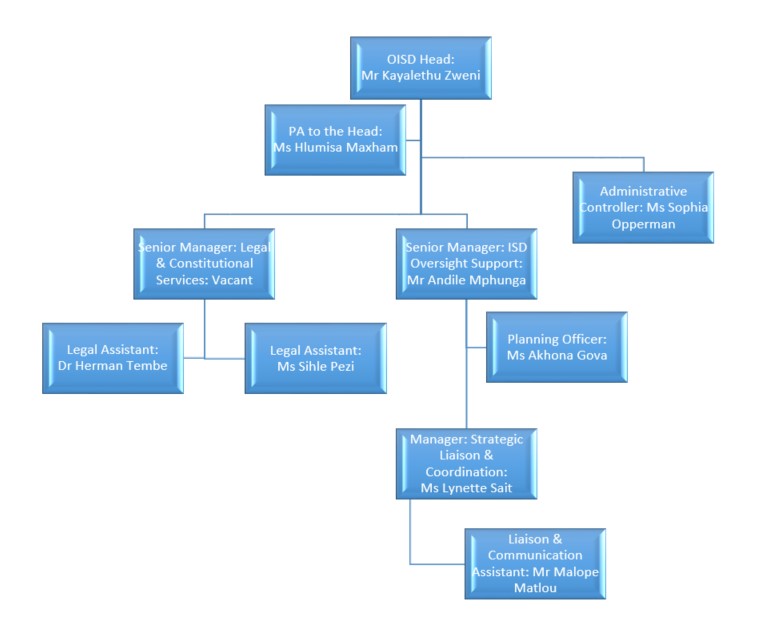
Contact Details:
Mr Kayalethu Zweni: OISD Head
Tel: 021 403 3313/3680
Cell: 083 384 6088
Email: kzweni@parliament.gov.za
Email: hmaxham@parliament.gov.zaMr Andile Mphunga: Senior Manager: ISD Oversight Support
Tel: 021 403 3317
Cell: 083 798 1160
Email: amphunga@parliament.gov.za
Email: agova@parliament.gov.za



